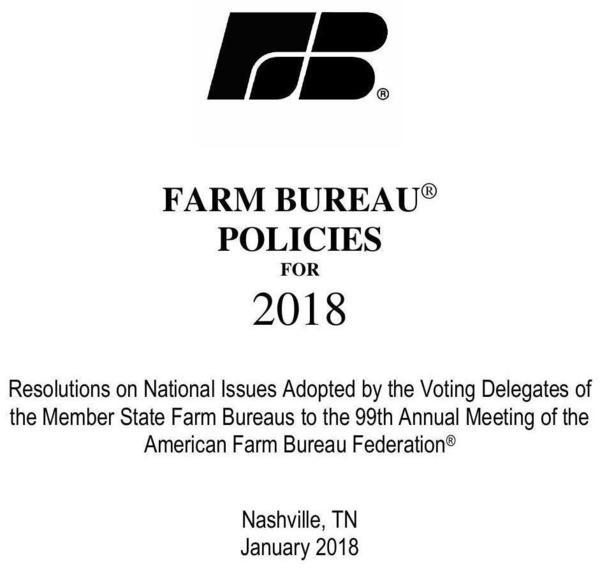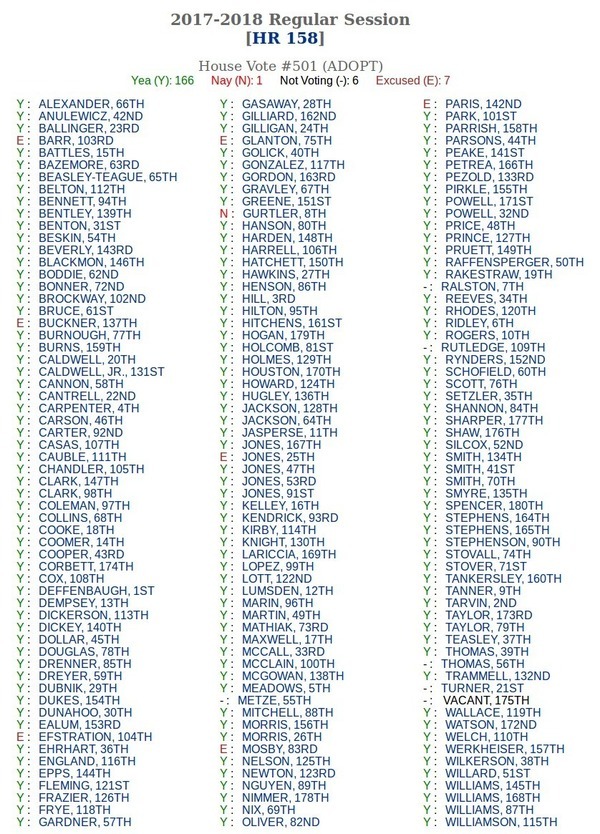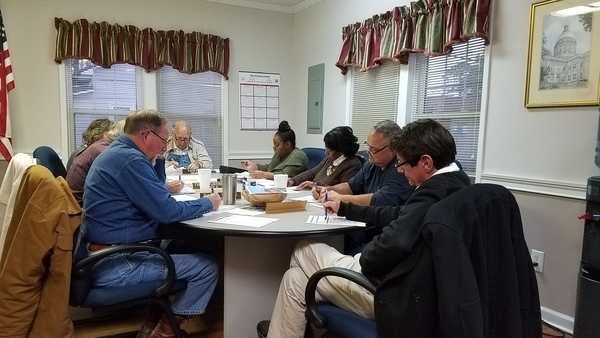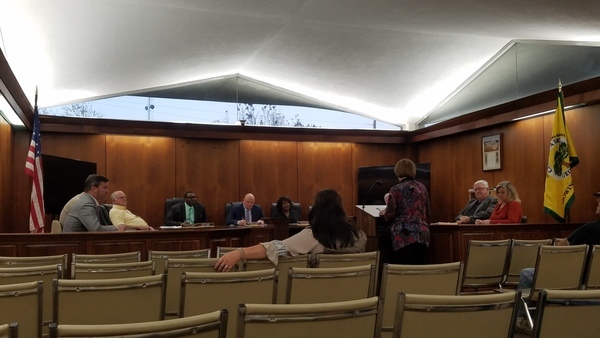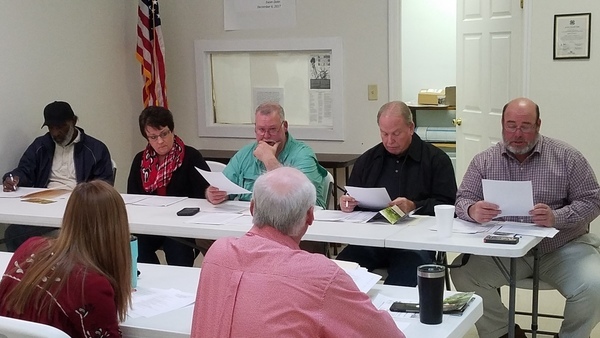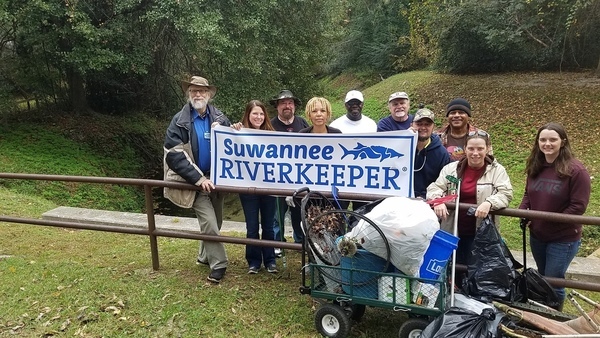If you want the Valdosta wastewater situation to be worse,
let HB 316 SB 116 pass, taking away revenue for Valdosta or anybody upstream
or down to control stormwater.
 It turns out HB 316
was apparently from 2009.
It turns out HB 316
was apparently from 2009.
The stormwater bill before the Georgia legislature this year (2017) is
SB 116.
Here are the current GAWP talking points about SB 116,
which you may notice also mention HB 316, which leads
me to believe SB 116 is just HB 316 back again under another name.
Please Oppose Senate Bill 116
Georgia Association of Water Professionals
Senate Bill 116 would exempt “water-neutral sites”,
defined as those properties designed to control runoff form a 25
year, 24-hour storm event in a manner consistent with the Georgia
Stormwater Management Manual (GSMM), from paying stormwater user
fees charged by local governments or authorities that have
established stormwater utilities. Water-neutral sites, as defined in
this bill, still discharge stormwater to the local drainage system,
which the local government or authority is legally responsible for
operating and maintaining.
Implications of HB 316: We ask you to consider the following
far-reaching implications of the bill.
- Local Control. The State of Georgia should not interfere in how
a local government operates a utility or charges its customers. This
would be equivalent to the State saying how a local utility could
charge (or not charge) for water or sewer services. If the General
Assembly exempts “water-neutral properties” from paying
fees for stormwater services, could they next exempt a defined class
of customers from paying local water and sewer fees in the future?
- Economic Impact on Local Governments. This bill could have a
devastating impact on local governments who are required to operate
and maintain stormwater drainage systems for the public good and to
protect the health, safety and welfare of their communities.
“Water Neutral” properties are not actually water
neutral because they still discharge stormwater runoff to the local
drainage system thereby causing an impact. A local government still
must bear the cost of maintaining the stormwater drainage system
even if every property builds a detention pond to the 25 year, 24
hour storm event standard. The City of Griffin reports that the
potential loss of revenue to their stormwater utility, should this
bill pass, would be approximately 40% of their annual user fee
revenue, thus crippling their stormwater utility and its ability to
provide essential services.
- Public Safety. Stormwater utility revenues allow local
governments to reduce flooding and replace failing infrastructure,
including collapsing culverts under public roads. There is an
unacceptable risk to public safety if local governments no longer
have the ability to collect revenues to perform important and
essential storm water management services.
- Existing Credits. Eligible properties with detention ponds are
already offered user fee credits ranging from 30 — 50% from
most stormwater utilities. This credit is offered in recognition of
the reduced impact these properties have on the drainage system.
However, the credit is not 100% because controlling the 25 year,
24-hour storm does not eliminate a property’s impact on the local
drainage system; the customer still receives stormwater services.
- Customer Equity. Local governments are alone in their
responsibility to manage stormwater drainage systems and operate
stormwater management programs to protect life and property from
flooding, and to protect local waterways from stormwater impacts so
that the State’s waters remain fishable and swimmable for Georgians
to enjoy. There is virtually no funding available from the State or
Federal governments to assist local governments in carrying out this
important charge. Thus, local governments have been forced to
develop local financing mechanisms to provide sufficient revenue
sources to carry out this responsibility. Allowing a contributor to
the problem to be exempted from participating in paying a fair user
fee for this service would be grossly unfair to the remainder of the
paying customers and to the local government as well.
Here are
all the Georgia state senators in WWALS watersheds.
-jsq, John S. Quarterman, Suwannee RIVERKEEPER®
You can join this fun and work by becoming a WWALS member today!
In addition to ACCG and GAWP, this bill is also opposed by the
Georgia Water Coalition (GWC),
including WWALS.
Below are talking points from the
ACCG website.
Please contact your Georgia state legislators.
Please Oppose House Bill 316
Association County Commissioners of Georgia
Georgia Association of Water Professionals
House Bill 316 would exempt state government entities from paying
local government stormwater utility charges. While specifically
using the word “charges”, the proposed exemption appears to presume
that the stormwater utility fee is a tax and not a fee for services.
In presenting and promoting the bill, proponents may refer to these
fees as a “rain tax”. However, in 2004, the Georgia Supreme Court
specifically ruled in McLeod v. Columbia County that stormwater
utility charges are, in fact, a fee for services, and not a tax. The
State is exempt from taxes, but there is no legal or logical basis
for the State to exempt itself from paying valid fees for actual
services rendered.
Implications of HB 316: Continue reading →

